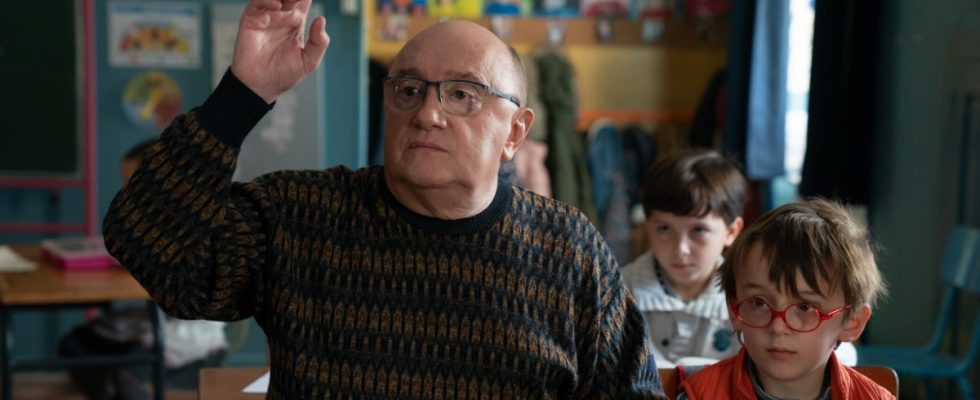Anna Steinbauer: Pick blackberries, sell detergent and just no men. The life of 48-year-old Etero, who lives as a single woman in a provincial village in Georgia, is not very exciting. That changes when, on a whim, she begins an affair with the delivery man Murman. Elene Naveriani creates a tender portrait of a woman who experiences late love and has to rebalance her needs. Expressive and idiosyncratic like its magnificent protagonist (Eka Chavleishvili), the emancipation drama tells a belated coming-of-age story in rich colors – including all the bitter berries that one has to swallow in a self-determined life.
Our name is Hanka
Doris Kuhn: A very personal documentary about the Sorbs, those Germans in Lusatia who have Slavic roots. Grit Lemke visits some of them and questions them about their identity. This is fueled a lot by memories of the past, of the loss of self-image or tradition over the past hundred years. But her film tells of the reconquest of Sorbianness, the language, the customs and, in sometimes grandiose images, also shows something of the grace and wounds of this area.
Civil War
David Steinitz: America is sinking into civil war, the metropolises are in ruins, marauding hordes are fighting each other in the countryside. A group of war reporters led by photographer Lee (Kirsten Dunst) travels along the battle lines towards Washington. Cult director Alex Garland (“Ex Machina”) paints a dark picture of the United States that is no longer United States – and is unfortunately only a few shades away from reality. That’s precisely why a little more care in the script and a little less pointless shooting in the White House wouldn’t have hurt the story.
Love in unequal times
Sofia Glasl: The East African island of Zanzibar in the late 1950s, shortly before the uprising against British colonial rule. The wealthy Yasmin flees an arranged marriage into the segregated Swahili neighborhoods and falls in love with the freedom fighter Denge. The Tanzanian filmmaker calls it a poetic revolutionary film Amil Shivji his historical drama “Love in Unequal Times” and rains inflammatory leaflets on the lovers in slow motion. Unfortunately, with such cliché-laden images, the social optimism remains only vague and the spirit of the revolution remains a romantic backdrop in an interchangeable love drama.
It’s the little things
Josef Grübl: As the mayor of a village in Brittany, Alice (Julia Piaton) is personally responsible for repairing potholes, renting out the bakery and teaching the children. When a retired, illiterate boy (Michel Blanc) wants to learn to read in the village school, she takes on that too. Melanie Auffret tells of an ideal world in which everyone sticks together and in which local politicians are not snapped at, booed or attacked. That is impossible? That’s exactly why you enjoy watching this feel-good fairy tale.
Susan Vahabzadeh: Evil is people’s privilege, believes the Japanese filmmaker Ryusuke Hamaguchi, nature can be brutal – but it doesn’t destroy anything with malicious intent. Hamaguchi, who won an Oscar for his last film “Drive My Car”, tells in “Evil Does Not Exist” about an idyllic village that is haunted by investors from Tokyo who are desperate to open a glamping site there. The villagers aren’t happy about it – but life will never be the same again. Pristine nature and capitalism don’t mix particularly well. The new film is completely different than “Drive My Car”, much quieter, more taciturn, more poetic. But perhaps just as philosophical – in any case, Hamaguchi creates characters whose hearts you feel like you can look into.

